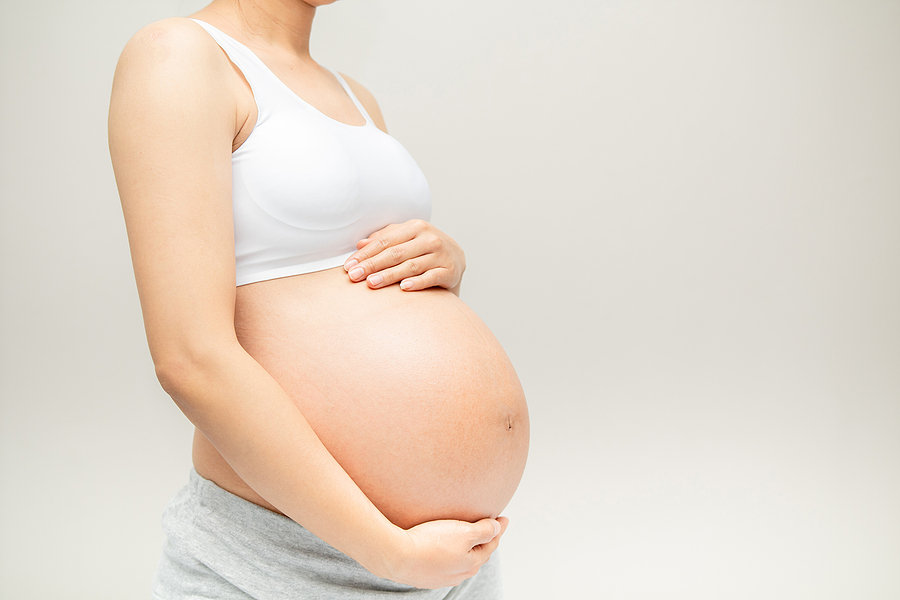It is crucial to meet all your dietary demands as a pregnant woman to guarantee that you have a healthy pregnancy and that your baby can develop normally.
Pregnancy is the only moment when your diet affects the health of another individual. Pregnant women have increased nutritional needs to support a baby’s fast growth and development. And more nutrients are required to strengthen the expectant mother’s healthy reserves.
Often, nutrition alone does not provide everything. For this reason, all expectant mothers must take prenatal vitamins to guarantee that they receive essential nutrients that sustains the pregnancy.
As an expectant mother, taking the proper prenatal vitamin and mineral supplements will assist you in preserving your health during pregnancy and minimizing any hazards that could occur and represent a risk to your baby.
The Significance of Prenatal Vitamins for Fetal Development
When pregnant, your body requires more nutrients to ensure a healthy pregnancy for you and your baby. Thus, prenatal vitamins are intended to offer your body these extra nutrients you may not be able to consume through diet alone. Without the right balance of nutrients, the risk of developmental problems increases.
Prenatal vitamins and minerals benefit most women before trying to conceive. Consider it an insurance policy to ensure you receive the proper amount of essential nutrients throughout pregnancy.
Even if you eat a wide variety of foods, including meat, dairy, fruits, vegetables, grains, and legumes, receiving all the nutrients you and your baby need aren’t easy.
It is more necessary for women with dietary restrictions, health difficulties, or pregnancy complications to take prenatal vitamins. Included are women who are:
- Vegetarians
- Suffering from food intolerances such as lactose intolerance or others
- Having specific blood diseases
- Suffering from an eating disorder
- Certain chronic conditions,
- Expecting twins or more than two children
It Reduces Your Child’s Risk of Developing Rickets
If you do not take your prenatal vitamins, you may get rickets, a disorder characterized by weakening and softer bones in youngsters caused by a deficiency of vitamin D.
The disorder can result in fractures and abnormalities, making it dangerous. Also, the youngster may experience delayed development and unusual bone growth.
A vitamin D supplement ensures the absorption of calcium and phosphorus.
Reduces the Risk of Spina Bifida and Neural Tube Defects
You can confirm that your baby receives adequate B vitamins and folic acid by taking prenatal vitamins. You may risk developing neural tube defects if you do not consume enough fluids, particularly early in your pregnancy and even before you conceive.
Among these are spina bifida (cleft spine) and (improper development of the brain and bones of the skull).
Taking your vitamins ensures that your body receives the proper quantity of folic acid, reducing the dangers to your baby by up to 70 per cent.
It Reduces Your Child’s Risk of Developing Rickets
If you do not take your prenatal vitamins, you may get rickets, a disorder characterized by weakening and softer bones in youngsters caused by a deficiency of vitamin D.
The disorder can result in fractures and abnormalities, making it dangerous. Also, the youngster may experience delayed development and unusual bone growth.
It Protects Against Iron-Deficiency Anemia
During pregnancy, women must consume a great deal of iron. According to experts, pregnant women need twice as much iron before conception.
Iron is essential during pregnancy to produce haemoglobin (blood) for the mother and child. Having adequate iron levels also ensures that your baby receives the necessary quantity of oxygen from your lungs.
You can help prevent iron deficiency anaemia, which can cause extreme exhaustion, by taking your vitamins.
Protects Against the Consequences of Calcium Deficiency
Inadequate calcium intake can also affect pregnancy. That is, if you do not consume enough calcium, your child may begin to absorb it from your bones. This could affect your health in the future.
So, prenatal supplements are essential to ensure you receive the recommended daily calcium intake.
Possible Risk Reduction for Other Birth Defects
Also, in addition to the benefits outlined, taking prenatal vitamins provides your body with the folic acid it needs to reduce the likelihood of your kid being born with a cleft or palate and specific congenital disabilities of the heart.
Reduces the likelihood of premature birth, low birth weight, and infant mortality
By taking prenatal vitamins, you also reduce the risk of having a low birth rate or delivering your child prematurely. You also reduce the chance of infant death when they are born.
Possible risk reduction for preeclampsia and gestational diabetes
Taking enough doses of folic acid—particularly in the early stages of pregnancy—may reduce the risk and likelihood of developing gestational diabetes and preeclampsia.
Many mothers with severe preeclampsia tend to develop high blood pressure, which may necessitate an emergency C-section.
Do prenatal vitamins have any adverse effects?
Constipation can often be caused by iron in prenatal supplements. To prevent constipation, do the following:
- Consume a lot of fluids,
- Increase your fibre consumption.
- Include physical activity in your routine if your healthcare professional gives you the green light.
- Consult your physician about using a stool softener.
If these suggestions do not seem to be effective, consult your healthcare physician about further possibilities.
When to take prenatal vitamins?
It is best to start at least one month before conception because so much development occurs in the early stages of pregnancy. By beginning this process early, you can help create a healthy environment for you and your baby during pregnancy.
Individuals have distinct nutritional requirements for their health and the development of their children. It is all about achieving the appropriate equilibrium for your situation.

What are the most crucial vitamins for pregnancy?
Your health is essential to a healthy pregnancy since it sustains and protects your developing baby. Certain micronutrients contribute to the growth process, so you must ensure that you and your baby receive adequate amounts throughout pregnancy and breastfeeding (if you choose to breastfeed). Among these vitamins and minerals are:
- Folic acid for the development of the brain and spine
- Iodine for mental development
- Vitamin D for brain maturation
- Iron for neuronal development
- DHA (an omega-3 fatty acid) for brain growth
- Choline for tissue development
A successful delivery to end
Pregnancy is a crucial period of human development. And a healthy diet is essential for a healthy and successful delivery of your babay. A newborn cannot develop into thriving adult without the necessary building blocks for good growth.
Diet and lifestyle affect all stages of life, beginning with fertility. They assist in determining the nutritional health and birth weight of your child. And your diet and lifestyle serve as a model for your children’s fetal, childhood, and adult eating habits.
Proper prenatal care has several elements. It begins with adopting a healthy, balanced diet that incorporates a high-quality vitamin and mineral supplement before and during pregnancy. And this is coupled with a healthy lifestyle. This is one of the most incredible presents you can give your future children.
Image Source: BigStockPhoto.com (Licensed)
Related Categories: Health, Reviews







